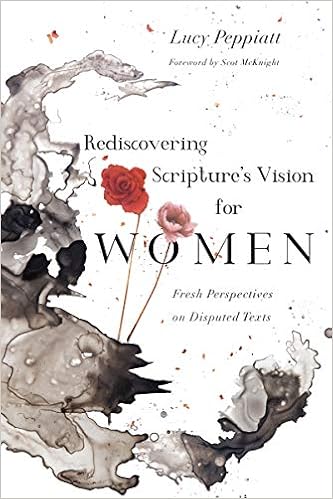This year during Mother’s Day, I began thinking about a certain mother of the faith who doesn’t get much attention at all. In fact, most of the attention she’s garnered has been (unjust) negative attention. Therefore, in order to honor her I’d like to correct the wrong perception the Christian world has created of her. I’d like to take a moment to celebrate Michal.
Michal — Loving Wife
Michal was David’s first wife. She is known to us evangelical Christians (thanks to numerous sermons) as the wife who was “cursed by God and rendered barren due to her disapproval of David’s unrestrained dancing”:
As the ark of the Lord came into the city of David, Michal daughter of Saul looked out of the window, and saw King David leaping and dancing before the Lord; and she despised him in her heart. … But Michal the daughter of Saul came out to meet David, and said, “How the king of Israel honored himself today, uncovering himself today before the eyes of his servants’ maids, as any vulgar fellow might shamelessly uncover himself!” … And Michal the daughter of Saul had no child to the day of her death. — 2 Sam. 6:16, 20, 23, bold mine
Perhaps you remember this supposedly haughty woman? Or, at the very least, you remember sermons expressing her belittling disapproval of King David dancing before God without shame. One commentary describes Michal this way:
Proud of her royal extraction, she upbraided her husband for lowering the dignity of the crown and acting more like a buffoon than a king. But her taunting sarcasm was repelled in a manner that could not be agreeable to her feelings while it indicated the warm piety and gratitude of David.[1]
And I recently read a meme that said something like this about her:
David’s wife was judgmental when it came to how he praised God. The one person who should’ve known his praise was from a pure heart decided to look down on him. Be careful of who you connect to. If they don’t support your spiritual life or the things you do for God, you need to let them go.
But to get to the heart of Michal’s true story, it’s extremely important to take note that Michal once completely loved David. Which leaves us begging the question how did Michal go from loving David to despising him? Was it because David danced with uninhibited joy while nearly naked? Or could there possibly be more to this story (and more to this woman) than mere superficial pageantry?
As Robert Alter so astutely points out in The Art of Biblical Narrative, “Until the final meeting between Michal and David, at no point is there any dialogue between them—an avoidance of verbal exchange particularly noticeable in the Bible, where such a large part of the burden of narration is taken up by dialogue. When the exchange finally comes, it is an explosion.”[3]
What Alter notices is that something very uncomfortable and specifically unspoken has taken place between this husband and wife. And it is at the moment of David’s joyful dance that all Michal’s pent-up, unexpressed anger comes to a head and explodes. But what happened between this pair? What caused Michal’s heart to change so drastically?
Well, we can be certain that Michal did not “despise David in her heart” merely because she didn’t like to see the King belittling the monarchy by dancing naked. In other words, it was not Michal’s regal status that David tarnished. After all, a woman does not go from loving her man to “despising” him simply because he dances in a seemingly vulgar way while praising God. There is nothing in Michal’s story line that suggests – at all – that she was overly concerned about royal status. The truth is there is far more to Michal and David’s story than vulgar dancing.
Michal – A Complicated Life
In getting to know Michal, it’s important to take note of her immediate family—take particular notice of who her mother was as that information will come in handy later on:
Now the sons of Saul were Jonathan, Ishvi, and Malchishua; and the names of his two daughters were these: the name of the firstborn was Merab, and the name of the younger, Michal. The name of Saul’s wife was Ahinoam. –1 Sam. 14:49–50
Now Michal meets David early on in life. David had already joined Saul first as his musician, then as his armor-bearer, and eventually (after killing Goliath) he was placed in charge of King Saul’s army. (Which maybe wasn’t Saul’s greatest idea because soon all Israel fell in love with David because he was able, through God’s Spirit, to defeat Saul’s enemies.)
As David’s popularity soars, King Saul decides to quietly get rid of David by offering his eldest daughter Merab to David as an honored gift for his continued work in fighting the Lord’s battles — all the time hoping that David will die during battle. Unfortunately for Saul, David doesn’t die. So when the time comes for King Saul to give Merab to David, Saul pulls the ol’ switcheroo and he gives Merab to another man, promising his next daughter to David—that being our lovely Michal. (Note that Saul was merely holding onto hope that David would eventually be killed in battle and that no actual wedding would take place.) Now the difference between Merab and Michal is that Michal actually loved David. Scripture tells us:
Now Saul’s daughter Michal loved David. Saul was told, and the thing pleased him. Saul thought, “Let me give her to him that she may be a snare for him and that the hand of the Philistines may be against him.” –1 Sam 18:20-21
So, Saul offers Michal to David so David will continue to go to war for him—and hopefully be killed. (A tactic David later uses himself). David, not wanting to lose the opportunity of becoming the King’s son-in-law again, attacks the Philistines, killing 100 Philistines and giving their foreskins to Saul as a bride price. Unfortunately for Saul (again), David has survived. King Saul is now cornered and he reluctantly gives Michal to David:
Then Saul said, “Thus you shall say to David: ‘The king does not desire any dowry but one hundred foreskins of the Philistines, to take vengeance on the king’s enemies.’ ” But Saul thought to make David fall by the hand of the Philistines. So when his servants told David these words, it pleased David well to become the king’s son-in-law. Now the days had not expired; therefore David arose and went, he and his men, and killed two hundred men of the Philistines. And David brought their foreskins, and they gave them in full count to the king, that he might become the king’s son-in-law. Then Saul gave him Michal his daughter as a wife. –1 Sam. 18:25–29, NKJV
Two wonderful things were materializing for David at this point in time and Saul, I imagine, could sense the power of it: 1) the Lord was now definitely with David and 2) David had found a wife who loved him. Which meant the King’s daughter’s political loyalties now rested with David.
From this point on, King Saul is driven by the fear of David. So much so, that he makes the decision to kill David himself. Luckily for David, however, Jonathan steps in to smooth things over. However, Saul’s goodwill doesn’t last long as he decides to kill David anyway. But luckily for David, this time Michal steps in to save David’s life with her prudent actions: “Michal let David down through the window; he fled away and escaped” (1 Sam. 19:12), bringing Proverbs 19:14 to life, “a prudent wife is from the Lord.”
It is now obvious that David has found a loving (and protective) wife — a true “helper.” However, David’s affections for Michal are perhaps not as strong. David instead seems to bestow his appreciation upon her brother Jonathon, speaking these famous words at his death: “greatly beloved were you to me; your love to me was wonderful, passing the love of women” (2 Sam. 1:26). David may have hoped marrying Michal would soften Saul’s heart toward him, but this definitely didn’t happen. After David became engaged to Michal, Saul’s wrath grew and David eventually fled (for many, many years) seemingly forgetting all about Michal.
Michal – The Forgotten Wife
During his hiatus, David meets Abigail, wife of Nabal. Abigail also saves David, this time from “bloodguilt” (avenging himself; see 1 Sam. 25:33). Abigail then prudently asks David to “remember her” (1 Sam. 25:31) which suggests she has a desire for marriage. As soon as Nabal turns up dead, David then sends for Abigail and he marries her:
When David’s servants came to Abigail at Carmel, they said to her, “David has sent us to you to take you to him as his wife.” … David also married Ahinoam of Jezreel; both of them became his wives. Saul had given his daughter Michal, David’s wife, to Palti son of Laish. –1 Sam. 25:40-42; 43-44, bold added
David has now married both Abigail and Ahinoam of Jezreel — and yes, I do believe Ahinoam, is Michal’s mother. (Others will argue she is not, but I have my reasons coming up.) Both Ahinoam and Abigail then go on to give birth to King David’s children (as David begins to reign in Hebron): “These are the sons of David who were born to him in Hebron: the firstborn Amnon, by Ahinoam the Jezreelite; the second Daniel, by Abigail the Carmelite” (1 Chron. 3:1). Amnon is now King David’s first-born son and yes, this is the son who later rapes Tamar and who David then refuses to punish “because he loved him” (2 Sam. 13:21). (There is a definite theme of male-partiality building within David’s life.)
Michal – The Problematic Wife
So here we have King David, his first-born son and heir to the kingdom is Amnon. The King’s wife is Ahinoam — mother of Michal. Michal is seemingly out of the picture. But why did David take Ahinoam as his wife? It seems it was God who determined that Ahinoam should be given to David, most likely to prove to Saul that David was now His chosen king. This is, for the record, one reason I believe Ahinoam is Michal’s mother:
Thus says the Lord, the God of Israel: I anointed you king over Israel, and I rescued you from the hand of Saul; I gave you your master’s house, and your master’s wives into your bosom…. –2 Sam. 12:7-8, bold mine
By this time, “Saul had given his daughter Michal, David’s wife, to Palti son of Laish, who was from Gallim” (1 Sam. 5:44). But David, after becoming King, strangely enough, decides he wants Michal. Since Michal was now married (more than likely with children by this time; although, the scriptures do not mention children from Palti), she had to be pried away from her current and apparently loving husband:
Then David sent messengers to Saul’s son Ishbaal, saying, “Give me my wife Michal, to whom I became engaged at the price of one hundred foreskins of the Philistines.” Ishbaal sent and took her from her husband Paltiel the son of Laish. But her husband went with her, weeping as he walked behind her all the way to Bahurim. Then Abner said to him, “Go back home!” So he went back. –2 Sam. 3:13-16
Why did David force Michal to live as his wife when he could have simply divorced her, perhaps “dismissing her quietly” as the righteous Joseph was planning to do when he discovered Mary was pregnant while engaged to him? (see Matt. 1:19). Well, Michal is bound by the law of the Old Testament and because of this she is considered an “adulteress” in everybody’s eyes (especially now that David is King): “a married woman is bound by the law to her husband as long as he lives; but if her husband dies, she is discharged from the law concerning the husband. Accordingly, she will be called an adulteress if she lives with another man while her husband is alive” (Rom. 7:2–3).
At this point, David has three options: 1) leave Michal alone and let it be said that King David’s wife is an adulteress, 2) grant Michal a divorce, or 3) force her home. But why should a king allow his wife to be called an adulteress? And why should a King get divorced? The woman was his by law — he paid the bride price. And David by this time was starting to learn that David gets what David wants.
Michal — A Lawful but Unlawful, Very Uncomfortable Wife
Strangely enough, David took to himself both mother and daughter despite Moses’ teaching: “You shall not uncover the nakedness of a woman and her daughter, and you shall not take her son’s daughter or her daughter’s daughter to uncover her nakedness; they are your flesh; it is depravity” (Lev. 18:17; see also Lev. 20:14). Consequently (and this is the number one reason I believe Ahinoam is Michal’s mother), David (in accordance with the law) could not ever sleep with Michal because he had already taken her mother as his wife. Therefore, Michal could not bear any children.
Michal is technically David’s first wife; however, her mother has given David his first-born son. Michal is now unable to — for the rest of her life — 1) have children or 2) enjoy the love of a husband. In other words, God most certainly did not curse Michal with barrenness — it was David who imposed upon Michal such a distressing and lonely life.
Therefore, now we can understand clearly Michal’s reaction — Michal, a complex woman with both a heart and soul, when faced with David’s dancing in utter joy and specifically freedom in the Spirit when mirrored against her own personal pain and specifically her lack of freedom (of which the King is not concerned) becomes simply too much for her to bear and so “she despised him in her heart.” (Literally, she hated him.) After all, as the saying goes “Like vinegar on a wound is one who sings songs to a heavy heart” (Prov. 25:1–20). In the end, Michal learns that she does not have a husband who loves her; rather, she has a “master.”
For more info and fun:
Why did God give David all of Saul’s wives?
Michal – The Faithful Woman
Although it was good that David never slept with both mother and daughter, this meant Michal was deprived of the attentions of a husband. She was bound to the strictness of the law. The only way Michal could have freed herself from this law would have been for David to divorce her or die. Yet, we do not see Michal searching for ways to kill David (as David does to others… like Bathsheba’s husband). In the end, Michal obeys her father; she obeys the law, and she obeys her husband/King – she is a woman of faith, living under the harsh reality of the Old Testament law. However, she is not a happy woman because she has not received mercy from David (which unfortunately becomes a theme in David’s life.)
But if you had known what this means, ‘I desire mercy and not sacrifice,’ you would not have condemned the guiltless. –Mt 12:7
Michal’s story is a sad reminder that women had to wait for a faithful and loving husband, a husband who would treat them not as property but as actual persons with feelings and dreams. Jesus died to release people from the Old Covenant enabling them to enter into a living New Covenant of freedom in the Spirit. Jesus died to help people discover what loving their neighbor really means — even when that neighbor is a woman. When I think of Michal, I think about how joyful she would be to know that Jesus came specifically for people like her, the forgotten ones.
Michal – Mother, NO Children? (for further study)
Did Michal actually have five sons before she lived with David? For those of you who may have heard about “the five sons of Michal” whom King David handed over to the Gibeonites to be killed, I’ve put together a couple of opposing links here for you to explore (just for fun).
For a little background information, the NRSV says that Merab (the sister of Michal) had five sons while the NKJV contradicts that by saying it was Michal who had five sons:
[King David] took Armoni and Mephibosheth, the two sons of Rizpah the daughter of Aiah, whom she bore to Saul, and the five sons of Michal the daughter of Saul, whom she brought up for Adriel the son of Barzillai the Meholathite; and he delivered them into the hands of the Gibeonites, and they hanged them on the hill before the LORD. –2 Sam. 21:8–9 NKJV
http://bib.irr.org/did-michal-have-children-or-not-2-samuel-623-and-218
[1] Robert Jamieson, A.R. Fausset, and David Brown Commentary Critical and Explanatory on the Whole Bible Vol. 1, p. 199 (Oak Harbor, WA: Logos Research Systems, Inc.)
[3] Robert Alter, The Art of Biblical Narrative (New York: Basic Books, 1981), p. 123.








Very good insight here. I never bought into the Michal was barren thing. I always thought she probably had children with Palti she was forced to leave behind as David wouldn’t have allowed her to keep them. There was also a difference between marriages where marriage to David was under authority of Saul, the father in law, had authority over any children in that marriage which was more matrilocal while marriage to Palti was patrilocal which meant Palti kept the kids. You see this in Jacobs marriage to Leah and Rachael where their father pursued Jacob for taking the daughters and grandchildren he thought belonged to him this exchanging matrilocal with patrilocal marriage. The same could be said if Saul is David and Michal had children.
Thank you for writing this message. I was just reading Samuel and started crying when getting to the part about Michal being left childless. I cried because David had wives and took Michal from a husband who lived her just to make her part of his collection. I’m so glad Jesus is the Lord’s anointed now. I can’t with David and his mistreatment of women. I can’t with all the sermons I have heard on my life about nagging, kill joy Michal. I don’t consider myself a feminist, but the treatment of Michal by David and the Church at large since causes my great pain.
This has made me cry.
Hi. I like your insight and I believe the bitterness of Michal is related to her mother, but for a slightly different reason. With all the respect David gave to Saul as king and the opportunities to end his life, I do not believe David would have married Saul’s wife until after he became king. Nor would he have had opportunity to marry a woman who is safely in Saul’s household. The Ahinoam of Jezreel is likely a different person for the scripture specifically identifies her from a specific location to draw a distinction from Saul’s wife. Nathan calls David out when he had Uriah killed and then eventually marries Uriah’s wife after getting her pregnant. In II Samuel 12 Nathan says this “ You are the man! Thus says the LORD God of Israel: ‘I anointed you king over Israel, and I delivered you from the hand of Saul. I gave you your master’s house and your master’s wives into your keeping, and gave you the house of Israel and Judah. And if that had been too little, I also would have given you much more!
David in fact was married to Michal’s mother only after Saul died and then could only have intimate relations with one of them to keep the law. It would appear he did not choose Michal. That would have kept her childless and bitter.
Saul had given Michal to a man named Paltiel before David was king who when he (Paltiel) knew she (Michal) was to be taken from him, cried in anguish over the loss. “ Then her husband went along with her to Bahurim, weeping behind her. So Abner said to him, “Go, return!” And he returned.”
It would appear that Michal had the affections from a man who truly loved her and she has suffered that loss; in addition it appears she would have to share David’s affections with numerous others including her mother, the loss would seem amplified and cause her a great deal of bitterness and anguish.
Thanks for this deep analysis of the issues surrounding Michal. It is full of a lot of embedded lessons
I stumbled upon this article because the story of Michal deeply troubled and bothered me. I have been struggling with my faith, particularly in terms of how women are treated in the church and in the Bible. Even though Jesus may have come for people like her, I just don’t understand why it was ok for her to suffer like that? It wasn’t Michal’s fault she was born before Jesus’s time, a descendant of the man who was so awful to her no less. Being a woman seems so cursed. I want to see this in a compassionate and understanding view of God but he seems so unfair to women.
First off, i love the mental and emotional thought that was put into this. Its fantastic.
Second, I agree with the commentor above. I dont think Ahinoam of Jezreel was the same for the same reasons.
Is it possible that David refused to sleep with her because she had been given to Palti?
Another thing that stuck out to me in my most recent read thru – for whatever reason, Michal did not choose to follow David into the wilderness.
Thank you for the incredible depth of emotion and the perspective in this.
The Old Testament is not History. It is a black satire and fabricated fiction. The ‘Babylonian returned’ priests combined, edited and rewrote the fables and stories combined with myths to create the prest seen OT.
This is such a brilliant analysis. It added to what I already know.
I wanted to point out something though; so David gave the five sons of Michal the daughter of Saul, whom she brought up for Adriel the son of Barzillai the Meholathite;
II Samuel 21:8 NKJV
The phrase *whom she had brought up* is key here.
It is key because in 1 Samuel 18:19, it is clearly stated that Merab, Saul’s daughter whom should have been given to David was given to Adriel the Meholathite as a wife.
Now going back to the ‘whom she had brought up,’ there is a possibility that both Merab and her husband died and so Michal had to raise the sons they left behind.
Thank you this is really insightful but I beg to differ on Ahinoam the Jezreelite being the mother of Michal and at the same time David’s wife because of the reference of God saying, ‘I gave you your neighbor’s wife based on two reasons:
*Ahinoam was married same time with Abigail the Carmelite in Hebron before he became King over Judah in Hebron for three years.
*In Africa, the wives of a predecessor(former king) can be inherited by the successor(present king) but in this case the David’s Ahinoam wasn’t met in Saul’s palace and I want to ask, did she escape from the palace to go to Hebron to marry David while Saul was still alive?
So, we need to dig delve deeper and be sure we have the correct spelling for Saul’s Ahinoam but really I don’t know if it Jonathan and Michal shared the same mother because Jonathan was referred to as the son of a rebellious woman and we wouldn’t know why he used that word.
And the name of Saul’s wife was Ahinoam the daughter of Ahimaaz. And the name of the commander of his army was Abner the son of Ner, Saul’s uncle(1Sam14).
David’s wife is Ahinoam-the Jezreelite.
They just happened to share the same name but two different people.
Great insight…Love your backing up with scriptures. Keep up the good work…Lovely research and time consuming…When God gives you that inspiration, go for it…A blessings to countless.
Be bless.
Analysis was cool. But why didn’t David touch michal? Likely it was because of michal’s marriage to paltiel over many years. However, we should understand the theory and practice of power. That’s why it dangerous to humiliate a man when He’s vulnerable; when his lot falls into a good place like David said, he’ll come for vengeance. Remember: king David wasn’t a man given to forgiveness, he never forgave anyone apart from his son Absalom. He got even with his enemies and the ones he couldn’t address, be commanded Solomon to finish them off. So, it’s a combination of who factors that made David to punish michal and her husband and essentially it’s in David’s DNA not TO forgive any infraction against his authority and ego. Again, the dictates of the throne propelled him to bring back michal to his palace and don’t forget the extraordinary bride price he paid for her. The singular price he paid would have been frightening the indelible in David’s whole being. Remember he was weak then but now he’s powerful to take back what belonged him and mind you, michal’s brideprice wasn’t returned before she married another man. So traditionally and legally, michal belonged to David. Again, Kings don’t forgive and don’t forget. When men are down, don’t humiliate them because they might arise and mount the throne! Vengeance is mine, they will say.